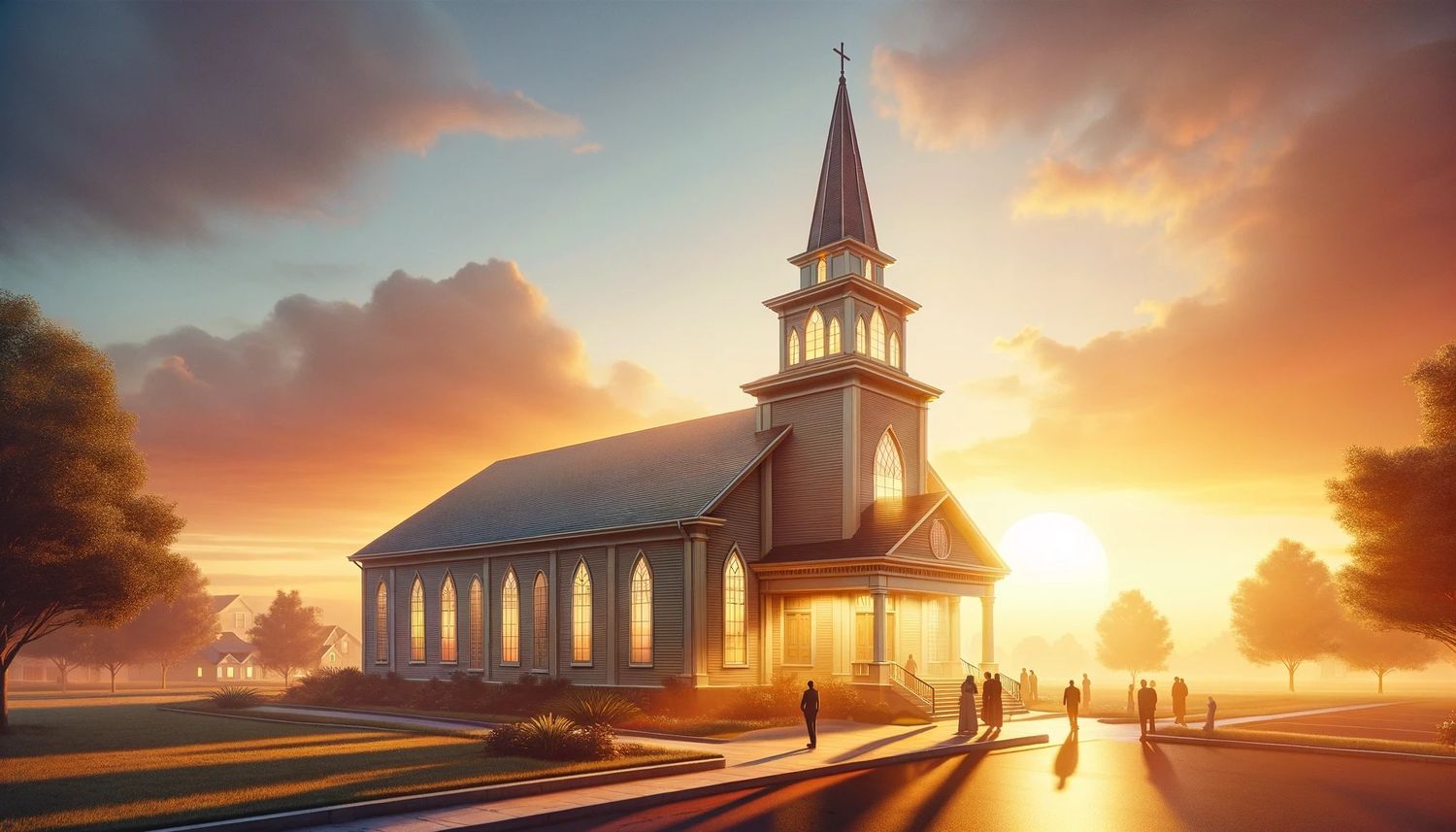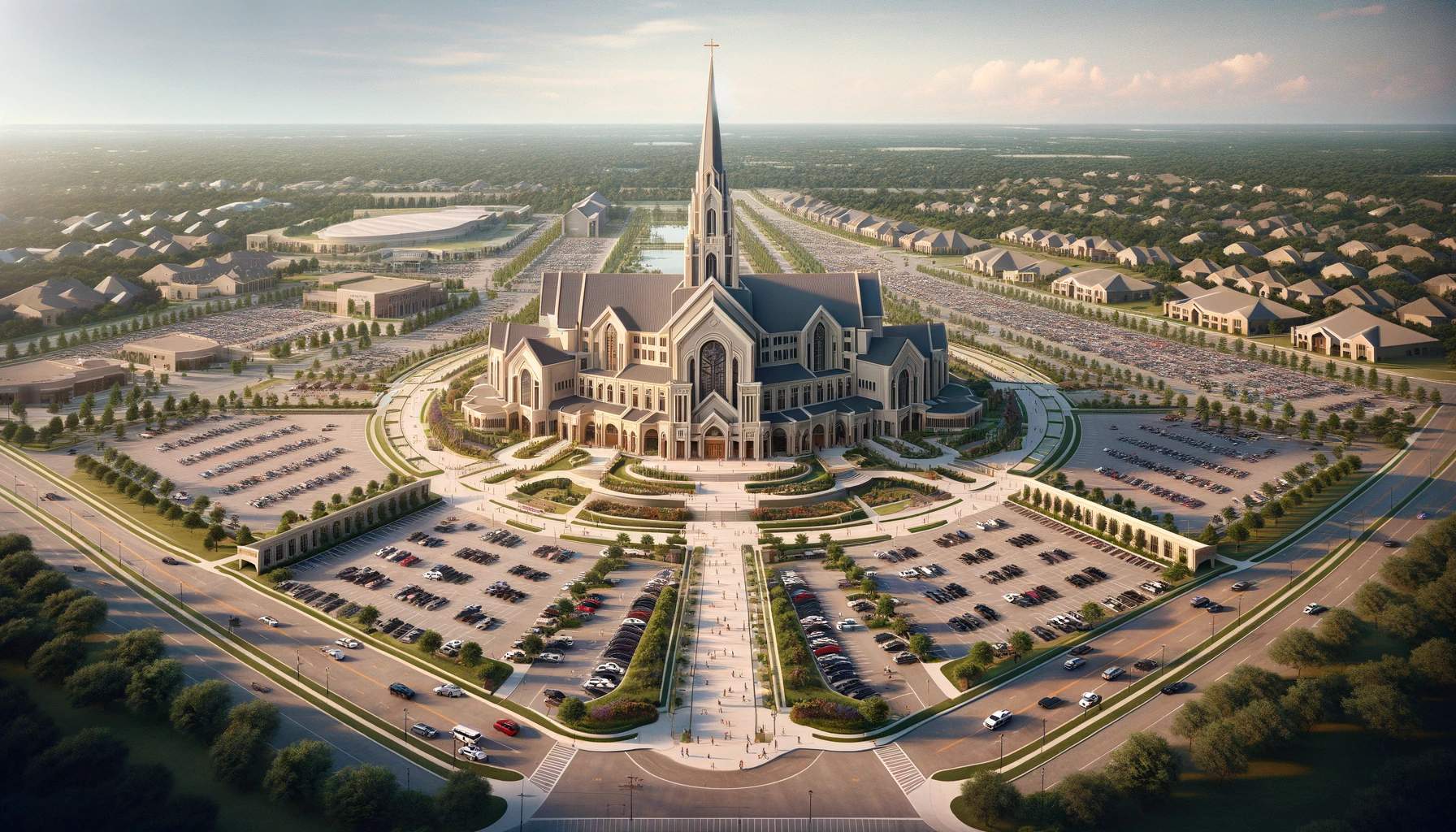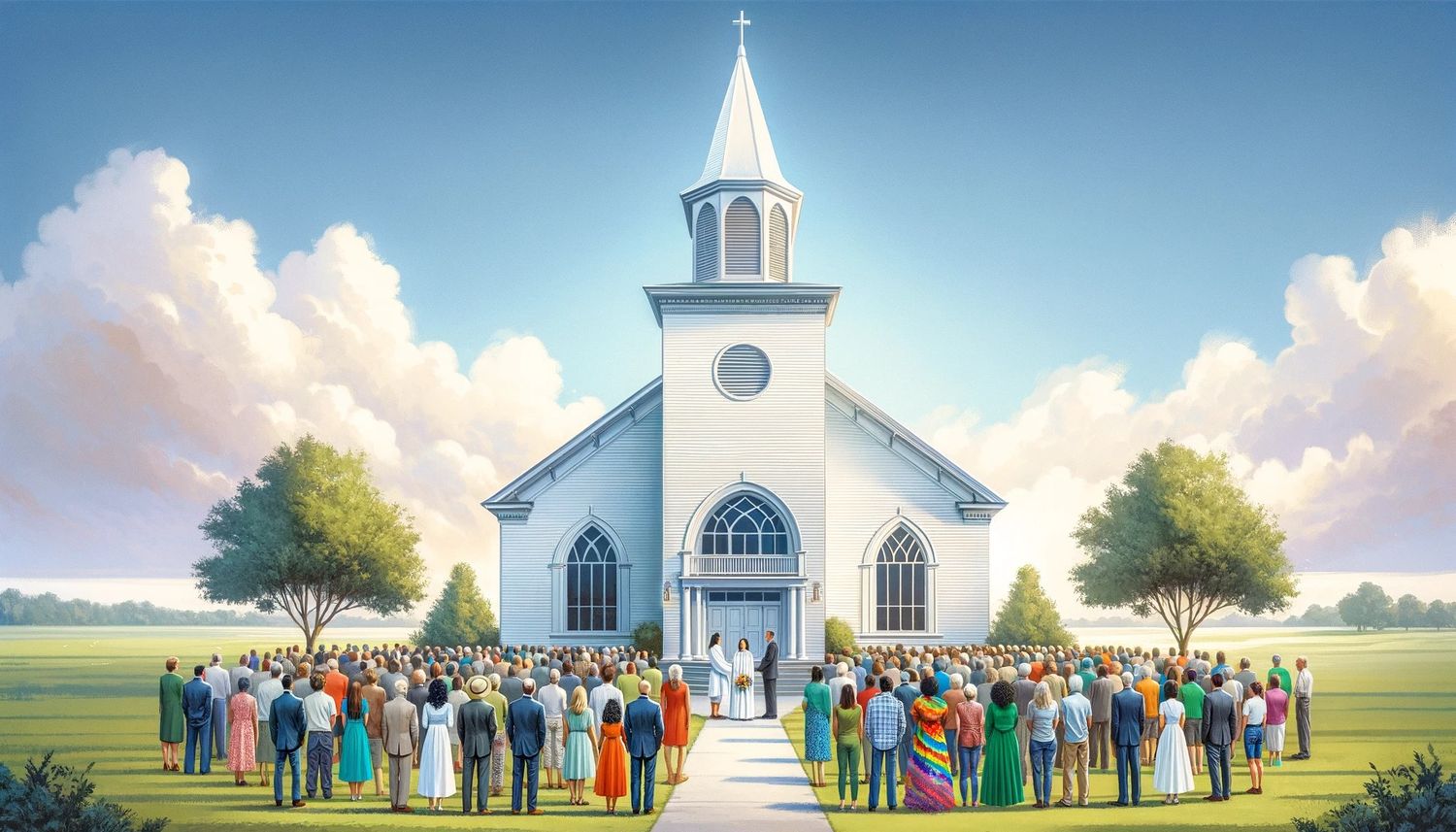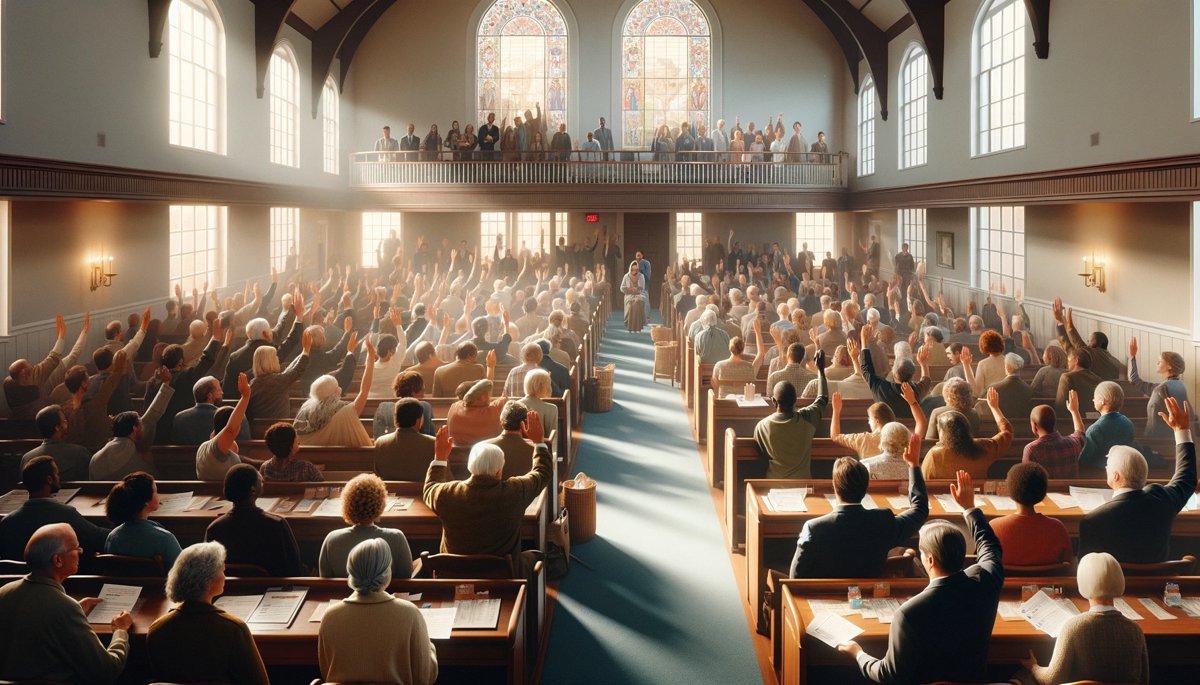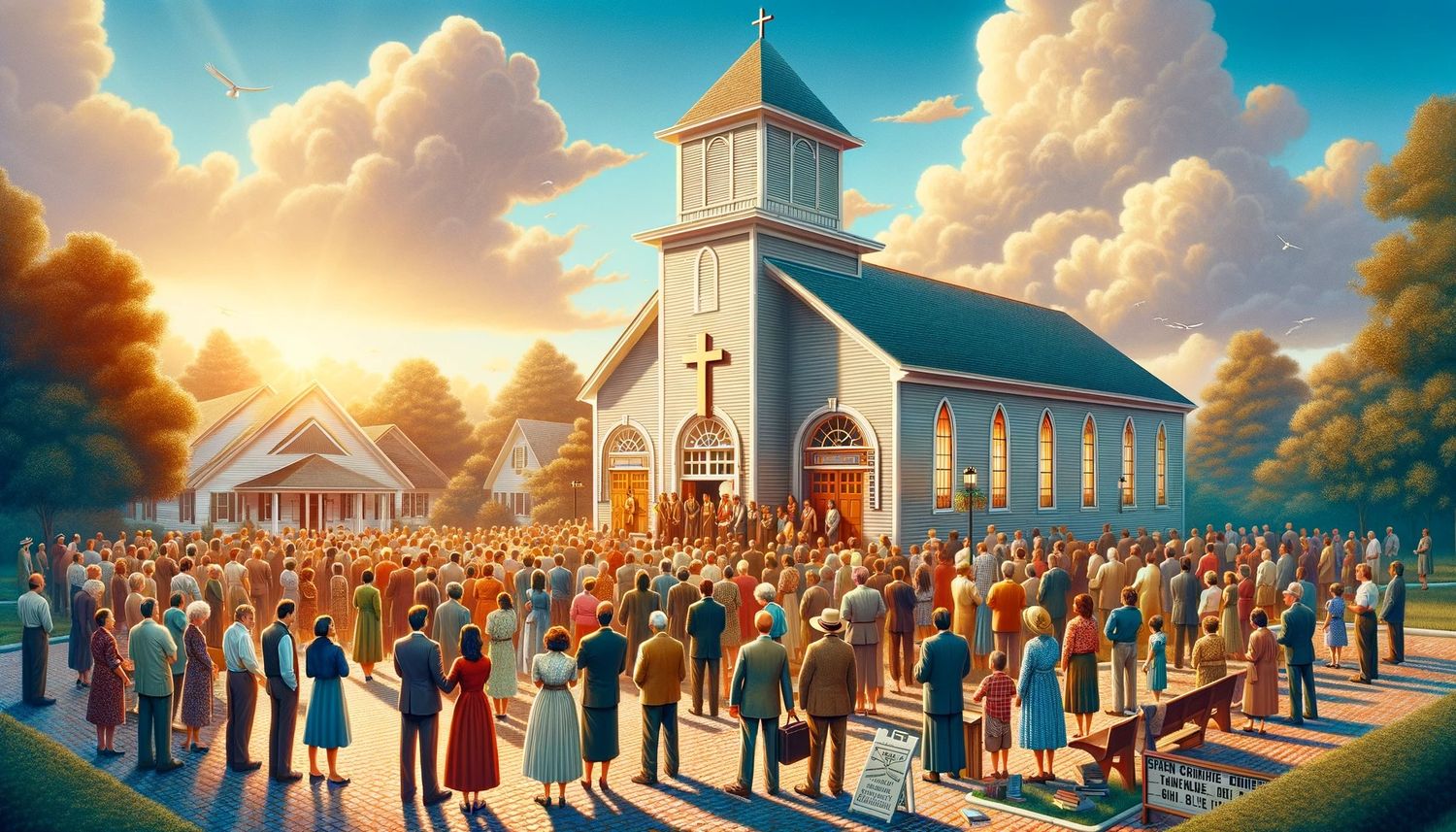Home>Theology and Spirituality>Where Is The Southern Baptist Convention
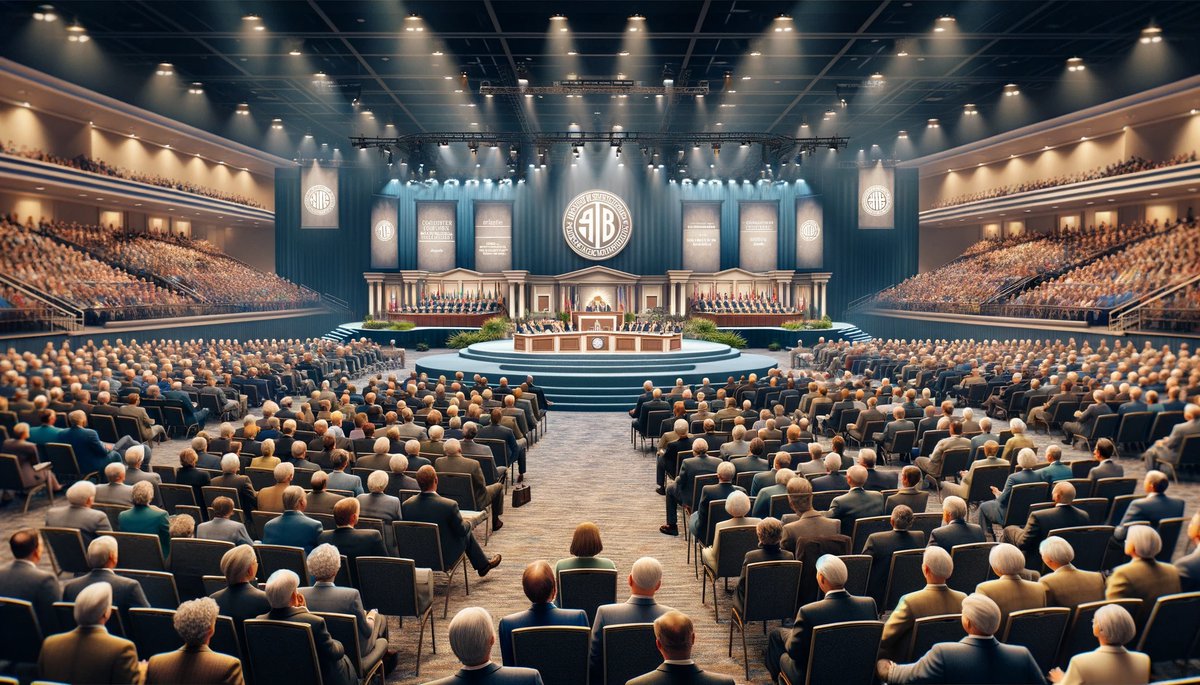

Theology and Spirituality
Where Is The Southern Baptist Convention
Published: February 19, 2024
Peter Smith, Editorial Director at Christian.net, combines deep insights into faith, politics, and culture to lead content creation that resonates widely. Awarded for his contributions to religious discourse, he previously headed a major organization for religious communicators, enhancing dialogue on faith's societal impacts.
Discover the location of the Southern Baptist Convention and explore its impact on theology and spirituality. Learn about the convention's significance and influence in the religious community.
(Many of the links in this article redirect to a specific reviewed product. Your purchase of these products through affiliate links helps to generate commission for Christian.net, at no extra cost. Learn more)
Table of Contents
Introduction
The Southern Baptist Convention (SBC) stands as a prominent and influential force within the landscape of American Christianity. With a rich history, vast membership, and far-reaching impact, the SBC has left an indelible mark on the religious, social, and cultural fabric of the United States. Understanding the origins, current status, and future trajectory of the Southern Baptist Convention provides valuable insights into the broader tapestry of American religious life.
The SBC's journey is a testament to the enduring power of faith and the complexities of religious identity in a diverse society. As we delve into the history, membership, geographic distribution, influence, and challenges of the Southern Baptist Convention, we gain a deeper appreciation for its significance and the intricate interplay between religious institutions and the communities they serve.
History of the Southern Baptist Convention
The history of the Southern Baptist Convention (SBC) is a compelling narrative that reflects the dynamic evolution of American Protestantism. The roots of the SBC can be traced back to the early 19th century when Baptists in the southern United States began to coalesce around shared theological convictions and regional identity. The issue of slavery played a pivotal role in the formation of the SBC, as it became a defining factor in the division between northern and southern Baptists.
In 1845, the SBC was officially established in Augusta, Georgia, as a response to the growing tensions over slavery within the larger Baptist community. The decision to form a separate convention was driven by the belief that the autonomy of local churches and the defense of slavery were essential principles that warranted a distinct organizational structure. This marked a significant divergence from the northern Baptists and underscored the deep-seated societal and theological divisions of the time.
The SBC's early years were marked by rapid growth and expansion, fueled by a fervent commitment to evangelism and missions. The convention's emphasis on individual conversion and the spread of the gospel contributed to its increasing influence across the southern states. The establishment of educational institutions, such as Southern Baptist Theological Seminary and other colleges, further solidified the SBC's commitment to theological education and the training of future leaders.
Throughout its history, the SBC has weathered various internal and external challenges, including periods of theological controversy and social upheaval. The convention grappled with issues related to modernity, biblical interpretation, and the role of women in ministry, reflecting the broader tensions within American Christianity. Despite these challenges, the SBC continued to adapt and grow, maintaining its position as one of the largest and most influential Protestant denominations in the United States.
The history of the Southern Baptist Convention is a testament to the complex interplay of faith, culture, and social change. It reflects the enduring impact of historical events and ideological shifts on religious institutions, as well as the ongoing process of adaptation and renewal within the context of American society. The SBC's journey from its origins in the antebellum South to its present-day prominence is a testament to the resilience and dynamism of religious traditions in the face of profound cultural shifts.
Current Membership and Demographics
The Southern Baptist Convention (SBC) boasts a substantial and diverse membership that reflects its widespread influence across the United States. As of the most recent data, the SBC comprises over 47,000 churches and congregations, with an estimated total membership exceeding 14 million individuals. This sizable membership places the SBC among the largest Protestant denominations in the country, underscoring its significant presence within the American religious landscape.
Demographically, the SBC membership reflects a broad spectrum of ages, ethnicities, and cultural backgrounds. While historically rooted in the southern states, the convention has expanded its reach to encompass a geographically diverse membership, with congregations and members located across all 50 states. This geographic dispersion has contributed to the demographic diversity within the SBC, as it continues to attract individuals from various racial and ethnic groups, reflecting the evolving tapestry of American society.
In recent years, the SBC has made concerted efforts to address issues of diversity and inclusion within its membership. Initiatives aimed at fostering racial reconciliation and promoting multicultural engagement have sought to create a more representative and inclusive community within the convention. These efforts align with the SBC's commitment to reflecting the broader demographic shifts occurring within the United States and embracing the rich diversity of its membership.
Furthermore, the SBC's membership encompasses a wide range of theological perspectives and worship styles, reflecting the diverse theological traditions and expressions present within the convention. While the SBC is known for its conservative theological stance and commitment to traditional Baptist doctrines, it encompasses a spectrum of theological emphases and practices, accommodating a variety of worship preferences and doctrinal interpretations among its member churches.
The current membership and demographics of the Southern Baptist Convention underscore its expansive reach and multifaceted composition, reflecting the complex interplay of cultural, demographic, and theological dynamics within the convention. As the SBC continues to navigate the challenges and opportunities of a rapidly changing society, its diverse membership remains a testament to the enduring relevance and adaptability of this influential religious institution.
Geographic Distribution of Southern Baptist Churches
The geographic distribution of Southern Baptist churches encompasses a vast and diverse expanse, reflecting the convention's widespread influence and presence across the United States. Historically rooted in the southern states, the Southern Baptist Convention (SBC) has expanded its reach to encompass a geographically diverse network of congregations, extending far beyond its original regional boundaries.
Southern Baptist churches can be found in virtually every state, with a particularly strong concentration in the southeastern and southwestern regions of the country. States such as Texas, Georgia, North Carolina, and Florida boast a significant number of Southern Baptist congregations, reflecting the convention's enduring legacy in these areas. However, the SBC's reach extends well beyond the South, with substantial membership and church presence in states across the Midwest, West, and Northeast.
The geographic distribution of Southern Baptist churches reflects the convention's commitment to evangelism, missions, and church planting, as well as its responsiveness to demographic shifts and population movements. The strategic establishment of churches in urban, suburban, and rural settings underscores the SBC's adaptability and engagement with diverse communities. This broad geographic footprint enables the SBC to impact a wide range of cultural, social, and economic contexts, contributing to its multifaceted influence within American society.
Furthermore, the geographic distribution of Southern Baptist churches mirrors the demographic diversity of the convention's membership, encompassing a broad spectrum of ages, ethnicities, and cultural backgrounds. This diversity is particularly evident in regions outside the traditional southern strongholds, where Southern Baptist churches attract members from various racial and ethnic groups, reflecting the evolving tapestry of American society.
The SBC's geographic distribution also reflects its commitment to local autonomy and congregational independence, as individual churches are empowered to engage with and serve their specific communities. This decentralized approach allows Southern Baptist churches to adapt their ministries and outreach efforts to address the unique needs and challenges present within their geographic contexts, fostering a dynamic and responsive presence within diverse communities.
In essence, the geographic distribution of Southern Baptist churches embodies the convention's expansive reach, demographic diversity, and commitment to local engagement, positioning the SBC as a significant and multifaceted presence within the religious landscape of the United States.
Influence and Impact of the Southern Baptist Convention
The Southern Baptist Convention (SBC) wields a profound influence and exerts a far-reaching impact on the religious, social, and cultural fabric of the United States. As one of the largest Protestant denominations in the country, the SBC's influence permeates various spheres of American life, shaping the beliefs, practices, and values of millions of individuals and communities.
At the heart of the SBC's influence lies its commitment to evangelism, missions, and theological education. The convention's emphasis on spreading the gospel and nurturing a vibrant missionary spirit has contributed to its expansive reach and enduring impact. Through a network of churches, educational institutions, and mission initiatives, the SBC has played a pivotal role in shaping the religious landscape of the nation, fostering a culture of evangelism and outreach that extends beyond its own membership.
Moreover, the SBC's influence extends to its engagement with social and moral issues, reflecting its stance on matters of public concern. The convention has been vocal on issues such as sanctity of life, religious freedom, and family values, advocating for policies and initiatives aligned with its theological convictions. This engagement has positioned the SBC as a significant voice in public discourse, influencing debates and shaping public opinion on a range of ethical and social issues.
Furthermore, the SBC's impact is evident in its extensive humanitarian efforts and disaster relief initiatives. Through partnerships with various organizations and agencies, the convention has mobilized resources and volunteers to provide aid and support in times of crisis, demonstrating a tangible commitment to compassion and service. These efforts have not only alleviated suffering and met practical needs but have also showcased the SBC's capacity to effect positive change on a broad scale.
The influence and impact of the Southern Baptist Convention are also reflected in its cultural and educational endeavors. The convention's support for educational institutions, missions agencies, and cultural initiatives has contributed to the development of leaders, thinkers, and artists who have left an indelible mark on American society. This multifaceted influence underscores the SBC's enduring legacy and its ongoing contribution to the cultural and intellectual landscape of the nation.
In essence, the influence and impact of the Southern Baptist Convention are far-reaching and multifaceted, encompassing evangelism, social engagement, humanitarian efforts, and cultural contributions. As the SBC continues to navigate the complexities of contemporary society, its influence and impact remain integral to the broader narrative of American religious life.
Challenges and Controversies
The Southern Baptist Convention (SBC) has encountered a range of challenges and controversies that have tested its resilience and prompted introspection within the larger religious community. One of the most significant challenges has been the issue of racial reconciliation and diversity within the convention. Historically rooted in the southern United States, the SBC has grappled with its legacy of racial segregation and the need to address issues of racial injustice and inequality. Efforts to foster greater racial diversity and inclusion within the convention have been met with both progress and resistance, reflecting the complexities of navigating a diverse and evolving society.
Additionally, the SBC has faced internal tensions and theological controversies, particularly related to interpretations of scripture, ecclesial polity, and social ethics. Debates over theological interpretation, the role of women in ministry, and the nature of church leadership have at times led to divisions and disagreements within the convention, challenging its unity and coherence. These internal tensions have prompted soul-searching and dialogue as the SBC seeks to navigate the complexities of theological diversity and maintain its doctrinal integrity.
Furthermore, the SBC has confronted external challenges related to cultural shifts and societal changes. The broader secularization of American society, the rise of non-denominational churches, and shifting attitudes towards organized religion have posed challenges to the convention's traditional modes of engagement and outreach. Adapting to these cultural shifts while remaining faithful to its theological convictions has presented a delicate balancing act for the SBC, requiring thoughtful reflection and strategic adaptation.
Controversies surrounding ethical and social issues have also tested the SBC's resolve and public image. Debates over issues such as human sexuality, gender identity, and the church's response to contemporary moral dilemmas have sparked intense discussions within the convention and beyond. Navigating these contentious issues while upholding its biblical convictions has placed the SBC in the midst of cultural and ethical debates, requiring a nuanced and compassionate approach to complex societal challenges.
In essence, the challenges and controversies faced by the Southern Baptist Convention underscore the complexities of navigating a rapidly changing society while remaining faithful to its theological heritage. Addressing these challenges requires a spirit of humility, discernment, and a commitment to engaging with diverse perspectives, as the SBC seeks to navigate the complexities of contemporary religious life.
Future Outlook for the Southern Baptist Convention
The future outlook for the Southern Baptist Convention (SBC) is marked by both challenges and opportunities as the convention navigates the complexities of a rapidly changing cultural and religious landscape. One of the key areas of focus for the SBC's future trajectory lies in addressing issues of diversity, inclusion, and racial reconciliation. Efforts to foster greater representation of diverse voices within the convention and to engage in meaningful dialogue on matters of race and ethnicity are essential for the SBC's continued relevance and witness in a society marked by increasing diversity.
Furthermore, the SBC faces the ongoing task of navigating theological diversity and maintaining doctrinal integrity while fostering unity and cooperation within its diverse membership. Embracing a spirit of humility, openness to dialogue, and a commitment to theological robustness will be crucial as the convention seeks to navigate theological complexities and remain faithful to its foundational beliefs.
The future of the SBC also hinges on its ability to adapt to cultural shifts and engage with contemporary societal challenges while upholding its biblical convictions. Embracing innovative approaches to evangelism, community engagement, and social outreach will be vital for the SBC's continued impact and relevance in a rapidly changing world.
Moreover, the SBC's future outlook encompasses a renewed emphasis on compassionate service, humanitarian efforts, and global missions, reflecting a commitment to holistic ministry and a tangible expression of Christian love and care for those in need.
As the SBC looks to the future, it will need to grapple with the complexities of contemporary ethical and social issues, engaging in thoughtful and compassionate dialogue while upholding its biblical convictions. Navigating these challenges with grace and wisdom will be essential as the convention seeks to remain a relevant and influential voice in public discourse.
In essence, the future outlook for the Southern Baptist Convention is characterized by a call to embrace diversity, navigate theological complexities, adapt to cultural shifts, and engage with contemporary challenges while remaining faithful to its foundational beliefs. By embracing these challenges with humility, wisdom, and a spirit of innovation, the SBC can chart a course that ensures its continued impact and relevance in the ever-evolving landscape of American religious life.
